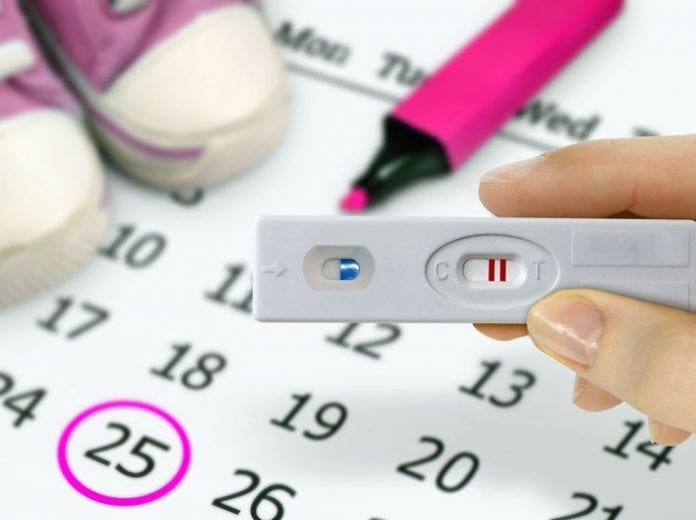Once you discover that you are pregnant, you know your life has changed forever. You, your husband, your families and friends begin to look forward to your baby’s arrival. You will also get questions such as, “What is the baby’s gender?” or “When are you due?”
As you near your due date, your anticipation rises. You start buying clothes, toys, a crib and a stroller for your bundle of joy. But knowing your due date is not just about preparing the baby room or buying things for your baby’s arrival, it is also about ensuring that you have a safe pregnancy.
You probably know by now that your chances of delivering on the assigned date is rare. Despite your due date being your doctor’s educated estimate, knowing when you are due to give birth is critical for clinical purposes.
Here are some reasons why accurate due dates are fundamental to helping your baby grow strong and healthy:
1. Helps give you the best prenatal care possible

As your doctor tracks the development of your baby, due dates provide information on when to intervene, speed things along, and deliver the baby in a timely manner. It allows doctors to accurately track maternal health and fetal development. Knowing your due date allows your doctor to map out a timeline of when to implement certain tests and other steps of prenatal care.
For example, a pregnancy’s first trimester is a critical period that should be closely monitored since it is the period that has the greatest risk of causing major birth defects. It can be quite risky if your doctor does not have accurate information of how far along you are into your pregnancy.
Accurate due dates are essential to good pregnancy care. The more information your maternity care providers have, the more they can ensure that the right things are being done at the right times.
2. Allows you to plan better

Before you go into the last month of your pregnancy, there are some things that you need to prepare. For working women, they need to plan their work leave and make sure that they have turned over all their tasks to someone at work.
For second-time mothers, knowing your due date will help you in preparing sibling care and in giving all sorts of reminders to your family before you go into labor.
You can also plan your schedule for when you need to buy things for the baby, such as the crib, diapers, car seat, etc. Make sure to set some time for getting the baby room ready as well.
3. Tells you the safest time to give birth

Apart from helping identify the appropriate time in the pregnancy to offer prenatal tests, knowing your due date provides a period when it is safest time for you to give birth. The life of the mother and the baby depend on the date of delivery. If it happens too early or too late, it could pose dangers to both the mother and the baby.
Although it may not apply to all, first time mothers tend to have pregnancies for about 41 weeks and 1 day while women who have had given birth before tend to deliver around 40 weeks and 3 days.
4. Tells development milestones
A due date provides information on how far along you are in your pregnancy and what developmental milestones you and your doctor should expect to see during the ultrasound, what tests will be performed and how your doctor will counsel you. Many management decisions about the pregnancy are also based on the due date.
For example, when a woman’s due date comes with no sign of labor, the doctor may recommend to induce the delivery. Studies show that there are risks to letting a pregnancy continue beyond the 40th week, including having a very large baby, needing forceps, a vacuum or cesarean delivery and even stillbirth. Because of these risks to both mother and baby, it is recommended that labor be induced before 43 weeks.
5. Reduces your anxiety
Anxieties run high as each month passes before you deliver, and having a more accurate due date can help reduce anxieties about the onset of labour. Since you have an idea on what to expect during certain stages of your pregnancy, this will help reduce feelings of uncertainty. Try to relax and give yourself credit for the new little person growing inside you.
How do you determine your estimated due date?

Your estimated due date or expected date of confinement is a term that describes the expected date of when a pregnant woman will go into labor.
There are many ways of determining your due date:
- First day of your last period
Compute your estimated due date by adding 280 days ( 9 months and 7 days) to the first day of your last menstrual period. Another way to compute is to subtract three months from the first day of your last period and add seven days. This method is suited for women who have a regular menstrual cycle.
- Conception date
If you remember your conception date, add 266 days to your conception date to get your estimated due date.
- IVF transfer date
If you are having your pregnancy through IVF, you can also add 266 days from your IVF transfer date to get your estimated due date.
- Ultrasound scan

If you do not remember when you conceived or when your last menstrual period was, or you’re not sure when your ovulation occurred, discuss with your doctor if you should have an ultrasound scan. An ultrasound uses the size of the fetus to determine the gestational age (the time elapsed since the first day of the last menstrual period) so that the estimated due date can be determined.
To make it easier for you to determine your due date, you can also use an Ultrasound.ie to help you make the computations.
Although the anticipation may be both exciting and frustrating at times, knowing your estimated due date will give time to prepare yourself mentally and physically so that you safely deliver a strong and healthy baby.









